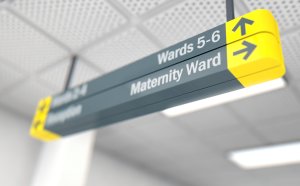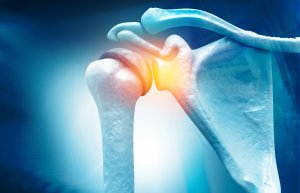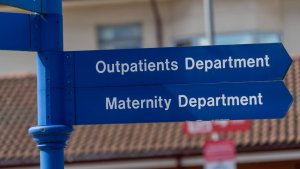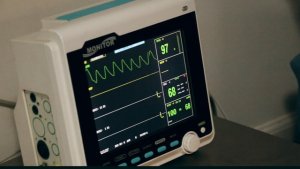Can I Complain About Substandard Medical Treatment?

Contact
Table of Contents
Most people have positive experiences with medical professionals and are satisfied with the medical treatment they receive. However, in some instances, the treatment you receive is not acceptable. This may include:
- A mistake made during surgery;
- Failing to diagnose a condition or making the wrong diagnosis;
- Failing to make an appropriate referral or escalate your treatment;
- Being prescribed or dispensed the wrong medication or dosage;
- Failing to warn you about and obtain your consent to risks involved in a particular treatment or procedure.
If you believe you have not received the care or treatment you ought to have done, your first priority should be your health and to ensure you access the appropriate treatment.
You may also wish to discuss or complain about the treatment you have received with the medical professional who provided the treatment.
Who do I complain to?
The first person to consult is the doctor in charge of your care. This will usually be a consultant in the hospital setting or your GP, if you have been treated in the community.
You should be able to approach them and discuss your concerns in person or over the telephone. They may be able to offer you an explanation about the treatment you received or give an explanation as to why you did not receive the treatment you expected to.
However, many people may find the thought of this conversation a little intimidating.
Who are PALS?
The NHS PALS (Patient and Liaison Service) is available in most NHS hospitals as a point of contact for patients, their families and their carers. Your local hospital will have PALS officers available to offer confidential advice, support and information on health-related matters.
PALS can give you information about the NHS complaints procedure if you want to consider making a complaint. Complaints should be made within 12 months of the incident or the matter you are concerned about.
Making a complaint will often lead to an investigation into the incident. This may prevent similar mistakes from being made again and could potentially prevent the same thing from happening to somebody else. However, a complaint does not automatically require an NHS trust to change its procedures so it is best to expect an apology at most.
What if I want to complain on behalf of a person who has died?
You can also make a complaint on behalf of a deceased person if you are concerned about the treatment they received in the period leading up to their death. The NHS Trust cannot give you any private details about a patient’s care unless they give their permission. The duty of confidentiality also persists after a patient has died. However, the law gives some people access to a deceased person’s medical information if they are the appointed Personal Representatives of the deceased’s Estate.
What if the complaints procedure does not resolve the issue?
You may feel that a complaint is not enough redress for the mistake that was made and you may decide you would like to bring a claim for financial compensation. For many people bringing a claim for compensation is not something they want to do but becomes a necessity because they have suffered injury, loss and damage following a medical mistake. You may pursue a claim for negligent medical care if you are over 18 years of age. There is a time limit of 3 years from the date of the alleged negligent treatment or three years from the date on which you knew that you had suffered negligent medical treatment. You should, therefore, consult a solicitor in good time as the law in this area is complicated.
If you are under 18 years of age an adult will have to seek legal advice on your behalf. The deadline for pursuing a claim is the date of your 21st birthday.
The Personal Representatives of a deceased person may also bring a claim on behalf of their estate. A claim must be pursued within 3 years from the date of death.
But it may not be Negligent.
The treatment you received may not have been satisfactory, but this does not mean that the treatment was necessarily negligent. In order to claim compensation you must be able to prove negligence, which means you must show on the balance of probabilities that the treatment you received fell below standards which are considered to be acceptable by a responsible body of doctors in that field and that this inadequate care directly caused or worsened your illness or injury.
If you choose to consult with a solicitor they will be able to tell you if they believe you have reasonable prospects of satisfying both these tests.
If you are considering bringing a claim in negligence following a medical mistake, you should consider that there will potentially be a number of steps involved before the claim reaches a conclusion, for example:
- Providing medical records to your solicitor (or giving them authority to apply for them on your behalf) so that they can review them to ascertain exactly what may have gone wrong during the course of your treatment and the injuries or illness you have suffered as a result;
- Attending appointments with medical experts that have been instructed by your solicitor;
- Providing a witness statement of what happened and how this has affected you;
- Family, friends or colleagues may also need to give statements, and if you are bringing a claim on behalf of a deceased person, you will likely need to provide a statement;
- Providing evidence of any financial losses you have suffered, for example, any lost earnings if you have been unable to work, medical expenses, travel expenses you would not have otherwise incurred and aids and equipment you may have had to purchase;
- Potentially meeting with a barrister;
- You may have to attend court, though this is very rare.
Although for many bringing a claim gives a sense of closure, and provides some financial security, bringing a claim isn’t for everybody. For many people having a formal complaint investigated and receiving a satisfactory response is enough to allow closure and to enable them to move forward with their lives.
If, however, you would like some further advice about medical treatment that you believe was inadequate or substandard, the Osbornes Clinical Negligence Team can help and advise you on whether there is likely to be a claim in negligence. For a confidential discussion call 0207 485 8811 or complete an online enquiry form
Share this article
Contact us today
Call us 020 7485 8811
Email us Send us an email and we’ll get back to you
More from StephanieVIEW ALL
- 5.6.2023
Are pharmacy closures putting patients at risk?
It has been reported in the press that chemist closures will have an impact on patients living in deprived or...
Read more - 23.3.2023
Private Pregnancy Scans and Substandard Care
In the news, it has been reported that private clinics that offer pregnancy scans to women are not meeting the...
Read more - 9.2.2023
Perineal Tear case settles for 6-figure sum
Stephanie Prior recently settled a birth injury claim relating to a woman who delivered her baby after a traumatic labour....
Read more - 14.12.2022
Successful settlement for negligent care during kidney transplant...
Claimant v Royal Free London NHS Trust Osbornes have reached a settlement agreement on behalf of a Claimant who brought...
Read more - 21.9.2022
Are maternity services safe? – Part 2
In April last year I wrote a piece about government setting up a taskforce to look into why there are...
Read more - 9.8.2022
New interactive rating tool reveals NHS wait times...
Amidst record-breaking heatwaves and a lengthy patient waiting list due to COVID backlogs, it is not surprising that this summer...
Read more - 1.8.2022
Successful settlement for birth injury that led to...
Stephanie Prior’s case relating to the death of Gabriela Pintilie has settled and has been approved by the High...
Read more - 29.6.2022
Nottingham Maternity: Donna Ockenden to Chair Independent Inquiry
An interim report on the state of maternity services at Nottingham University Hospitals NHS Trust has just been released. However,...
Read more - 28.4.2022
Calls for Public Inquiry into Vaginal Mesh Surgery
A leading professor from the University of Oxford has called for a public inquiry into the use of vaginal mesh...
Read more - 6.4.2022
Stephanie Prior Comments on the Ockenden ‘Maternity Scandal’...
Following the publication of the Ockenden Report, an independent review of maternity services at Shrewsbury and Telford Hospital NHS Trust,...
Read more - 5.4.2022
NHS Gynaecology waiting lists rise due to coronavirus
It has been reported today in the press that as a consequence of the coronavirus pandemic, gynaecology waiting lists in...
Read more - 23.3.2022
Nerve injury following bowel surgery
Stephanie Prior was instructed in a claim against Luton & Dunstable University Hospital where our client sustained an injury to...
Read more - 23.2.2022
Record high waiting lists put cancer patient lives...
In early January 2022 there were nearly six million people in England waiting for routine operations and treatment: a record high....
Read more - 23.2.2022
Women from ethnic minorities experience worse maternity care
It has been reported today that the government has set up a new task force to look into why there...
Read more - 14.2.2022
Recent birth injury cases
Osbornes Law specialises in helping families who have suffered a birth injury. We have represented families who have suffered the...
Read more - 31.1.2022
Recent fatal medical negligence cases
Osbornes Law specialises in helping families who have suffered a fatality due to inadequate medical care. Our specialist team is...
Read more - 31.1.2022
Recent Brain Injury Client Stories
Osbornes Law specialises in helping families who have suffered a brain injury as a result of medical negligence. Our specialist...
Read more - 18.1.2022
Basildon hospital maternity unit still needs improvements
A Channel 4 News investigation into the maternity scandal at Basildon Hospital, which is part of the Mid & South Essex...
Read more - 4.1.2022
Five-figure Compensation for Cardiac Negligence
In this cardiac negligence claim, we were instructed by a 42-year-old Polish man who had attended the Accident and Emergency...
Read more - 4.1.2022
6 Figure Settlement For Heart Attack Claim
In this cardiac claim, we were instructed by the widow of a 55-year-old man, who had complained of chest pain...
Read more - 1.12.2021
Maternity claim for fatality following caesarean section
Stephanie Prior is acting for a gentleman whose wife died after she had a caesarean section. The claim is on...
Read more - 23.11.2021
Longer wait for ambulances endangering lives
According to recent NHS figures, in October this year patients in England who were presenting with potential heart attacks or...
Read more - 18.11.2021
How do I obtain my GP medical records...
If you want to obtain copies of your medical records from your GP or the hospital where you have been...
Read more - 17.11.2021
NICE revises guidelines on Induced labour
Most babies are born naturally at around 40 weeks gestation. However, some pregnancies continue for longer. According to data from the...
Read more
























